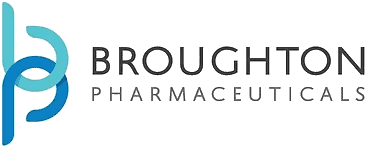Many hospitals say they’ve skipped, delayed or rationed medications, including critical cancer drugs, as the crisis across the country continues.
Many U.S. hospitals are struggling to find chemotherapy drugs, antibiotics and other lifesaving treatments amid an escalating nationwide drug shortage crisis, as experts increasingly call for federal government action.
About 1 in 3 hospitals say they’ve either skipped, delayed or prescribed less medication to patients than was needed because of the supply gaps, according to a survey published Thursday by the American Society of Health-System Pharmacists, a group that tracks U.S. drug shortages. Almost all hospitals in the survey say patient care is affected in some way.
“Drug shortages are having a significant clinical impact,” said Michael Ganio, senior director of pharmacy practice and quality at the group. “It’s just heartbreaking to see that patients are being affected to this level with the shortages.”
The survey’s findings were based on responses from more than 1,100 hospital and health-system pharmacists in the U.S. from June 23 through July 14. Among the hospitals, 41% had 500 beds or more.
All of them, aside from three respondents, said they were experiencing drug shortages, according to the survey.
About two-thirds of the hospitals categorized the current state of drug shortages as “moderately impactful,” meaning that patient treatment was affected, but that they could potentially manage it by switching to an alternative treatment or a different form of the medication.
“It may be that we’ve had to switch you to an oral tablet of an antibiotic sooner than we would have liked because the antibiotic is in shortage,” Ganio said.
One-third of hospitals said the drug shortages were “critically impactful,” forcing doctors to ration, delay or cancel treatments or procedures.
The category of drugs hospitals are running low on include:
- Corticosteroids.
- Oral liquids, like ibuprofen and amoxicillin.
- “Crash cart” drugs used in medical emergencies.
- ADHD medications.
- Injectable opioids.
More than half of the hospitals said they are having a hard time finding chemotherapy treatments — ranking highest on the survey — although it didn’t specify which cancer drugs.
Cisplatin, a chemotherapy drug used to treat cancers of the brain, throat, lungs and ovaries, has been in short supply since February, according to the Food and Drug Administration. A similar chemotherapy medication, carboplatin, is also in shortage, according to the agency, which hasn’t said when it expects the shortages to ease.
“This really shows how widespread the problem of drug shortages is,” said Erin Fox, a drug shortage expert and senior pharmacy director at the University of Utah.
Until the shortages are resolved, hospitals are offering alternative treatments, rationing and choosing which patients qualify for the drugs, the survey found.
“Pharmacists are working very hard behind the scenes to make sure that patients are not impacted,” Fox said.
Stacie Dusetzina, a health policy professor at Vanderbilt University in Nashville, Tennessee, called for action from the federal government and Congress.
“People in health systems and pharmacists are very clever and very good at adapting and knowing how to replace treatments,” she said. ”The fact that they’re reporting such high levels of concerns suggests we really need to start paying attention.”
Ganio said the pharmacists’ group is urging Congress to enact legislation to reduce disruptions in the supply chain, including diversifying the places where drugs are made.
“We may break the record of the most number of shortages at any given time,” he said. “We’d like to see more movement.”
